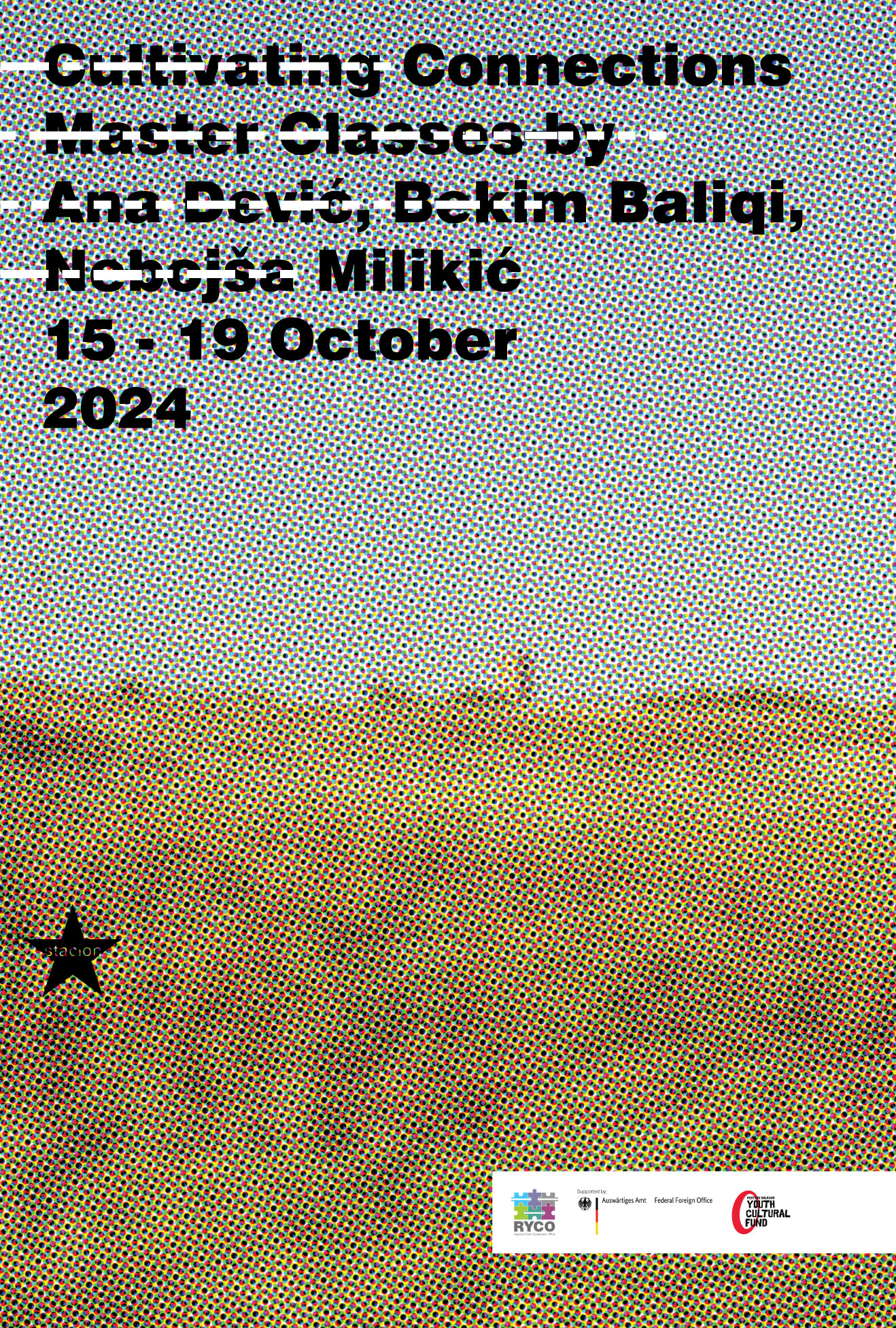
Master Class 1: Art and Memory in Practices of Commemorations after Mass Atrocities
Master Class by Dr Ana Dević
Prishtina, 15 – 19 October 2024, from 18:00 to 21:00
In-person participation
The deadline for registration 30 September 2024
Master Class Description
What role do commemorations play in the construction of collective memory in places afflicted by extreme war violence? How do different forms of commemoration create or hinder inclusive remembrance of the violent past? What happens, for example, when a village cinema theatre becomes a place of torture and detention, and is then abandoned, keeping the traces of extreme violence and yielding only traumatic memories?
The master class investigates how such memories can be re-integrated within the social life through commemorative practices, zooming in on several sites of extreme war atrocity in the post-Yugoslav spaces, and focusing on artistic and performative memory activism - the visually striking, also virtual tools of approaching memory, focusing on artists and citizens-viewers as actors, on communal and broader mobilizations, and significance in reclaiming spaces of war atrocities as inclusive places of memory. With the specific post-Yugoslav focus, the course will be placed in a comparative context, discussing conflicting memory-scapes of extreme atrocities in Europe and elsewhere.
The master class creates, first, a “conflicting map” of memorializations, where the dominant/ official commemorations of mass atrocities, which exclude significant portions of the community, are juxtaposed to the grassroots commemorative practices seeking inclusive forms of remembrance. We will benefit from the actual space of the course – Prishtina and its surrounding – taking excursions to the sites of memorials (spanning different periods) and museums and discussing them along the way.
Deriving from the overall aim of the program, the master class’s specific objectives are:
1. To explore the connection between sites of commemoration, the construction of collective memory (and collective denial), and (the apparent lack of?) durable peace in places that have been disrupted by violent conflict. Several sites of war atrocities and commemorations in Bosnia-Herzegovina, Serbia, Croatia and Kosovo will be discussed (not limited to): Srebrenica, Prijedor, Vukovar, Knin, Jasenovac, Batajnica, and Suharekë.
2. To map how local voices and grassroots perspectives are incorporated into, or excluded from, official versions of remembrance; to analyze the (conflicting) politicizations surrounding the selected sites of memory.
3. To Investigate how different media (films and news reportages, for example).) provide testimony/ witnessing the acts of atrocities: ethical aspects and usefulness of various visual methods/ techniques; the (im) possibilities of certain types of representation after war violence and extreme .
4. To critically analyse the universal human rights regimes as the (sole successful?) endeavour for justice following mass/ war atrocities (exploring the role of transitional justice mechanisms [TJ], such as international war crimes courts).
Intended Learning Outcomes
The master class is positioned in a comparative-historical perspective, linking the post-violence remembrance frames in the post-Yugoslav region to problems of commemorating atrocities in the post-Cold War and postcolonial Europe and elsewhere. It will introduce students to different ways of combining the concepts and methods of analysing art as a social and political practice, of “investigative aesthetics,” and social sciences, such as sociology of social movements, critical theory, memory studies, visual arts, architecture, and human geography.
Biography
Dr Ana Dević is a historical-political sociologist, currently a senior researcher at Aix-Marseille University where she is conducting research on alternative and artistic commemorations of collective violence in comparative perspectives. Ana obtained her PhD from the University of California at San Diego, and is an adjunct associate professor at the University of Bologna.
Participation
15 participants will be selected to participate in this master class. To register and participate in the program's master classes, interested participants must send the following documents in English by email: 1. CV, 2. letter of motivation, 3. scholarship application, sent to the official email address application@stacion.org
The deadline for registration is 30 September 2024.
The language of instruction is English.
The program offers scholarships that will cover tuition fees, travel and visa costs for six selected WB6 participants. Special conditions apply for alumni of the Summer School as School. Recommended Readings and the complete Master Class syllabus will be provided to registered participants.